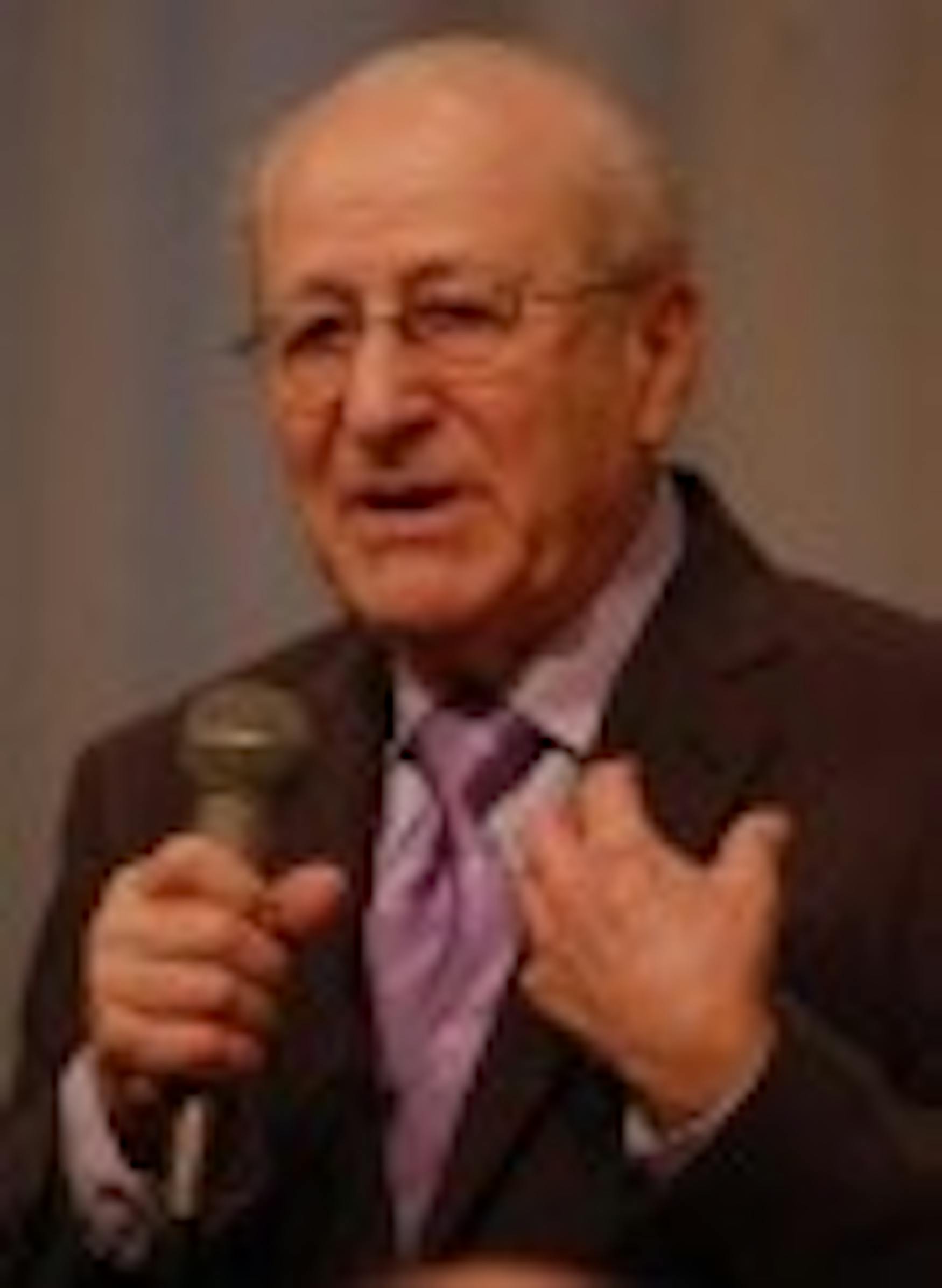Roth shares Holocaust lessons
Irving Roth, a Holocaust survivor and the director of the Holocaust Resource Center at the Temple Judea of Manhasset, N.Y., addressed Brandeis community members in the Rapaporte Treasure Hall last Thursday about the lessons one can learn from his experiences during the Holocaust.Brandeis Israel Public Affairs Committee, Brandeis Zionist Alliance, Hillel, Brandeis Interfaith Group, Holocaust Remembrance Week, the Interfaith Chaplaincy and the Brandeis Krav Maga Club co-sponsored the event.
In his presentation, Roth said he was born in Czechoslovakia in 1929 and by 1939 he began experiencing anti-Semitism on a frequent basis. Three personal stories, he said, show the effects Nazi propaganda and doctrine had on his life.
In the summer of 1939, Roth said he was shocked when he walked to a park with his friends and found a large sign in front of the park that read, "Jews and dogs are forbidden to enter." Roth said that was when he began to understand that he was different from the other non-Jewish children.
Also in 1939, Roth said he was forced to obey a curfew imposed on Jews and he had to wear a yellow star so that others could identify him as a Jew.
"They want[ed] to take away my identity as an individual," said Roth of the anti-Semitic policies.
In 1940, conditions for Jews in eastern Europe continued to worsen, Roth said, as Jews were fired from government positions and were no longer allowed to own businesses.
About 1,800 of the 2,000 Jews who lived in Roth's town were deported; however, Roth and his family were able to evade deportation. Roth said that of the 300 Jewish school children that had lived in the town, only 11 remained after the deportation.
Roth and his family thus decided to flee Czechoslovakia and move to Hungary. In 1944, however, the Hungarian government decided to deport its Jewish population via cattle cars to Auschwitz, an extermination camp operated by the Nazis.
At Auschwitz, the Jews were sorted; Roth and his brother were sent to the left to work and they were stripped, shaven and numbered with a tattoo; Roth's grandparents, aunt and cousin were sent to the gas chambers and crematoria.
Roth remained in Auschwitz until January 1945, but he said that when the Russian Army began to close in on the camp, the Jews were forced to go on a 3-day death march and were then transported by train to Buchenwald, a Nazi-operated concentration camp.
In Buchenwald, the Nazis took Roth's brother away. Two American soldiers liberated Roth on April 11, 1945.
At that point in the talk, Roth transitioned from his story of survival to the modern state of Israel. He said that with the establishment of the state of Israel in 1948, the Jews finally found a homeland where they could be safe from persecution.
He commented that had there been a state of Israel in the early 1940s, he might never have experienced the horrors of Auschwitz.
Roth also noted, however, that anti-Semitism continues in the world today and demonization of the Jews occurs in the form of delegitimization of the state of Israel.
"Demonization of the Jew has been repackaged from anti-Semitism to anti-Zionism. . the problem is, simply, Jews want to live," said Roth.
After the event, Brian Reeves '11, president of the Brandeis chapter of J Street U, a "pro-Israel, pro-peace" American advocacy group said in an interview with the Justice, "I was a little dismayed how he transitioned into Israel, but I was glad he answered about Israelis and Palestinians sharing Jerusalem."
Sarah Geller '13, president of BIPAC, said in an interview with the Justice, "[Roth] was an incredible speaker who really conveyed his message and how this can never happen again, and not just to Jews-just to anyone around the world.




Please note All comments are eligible for publication in The Justice.